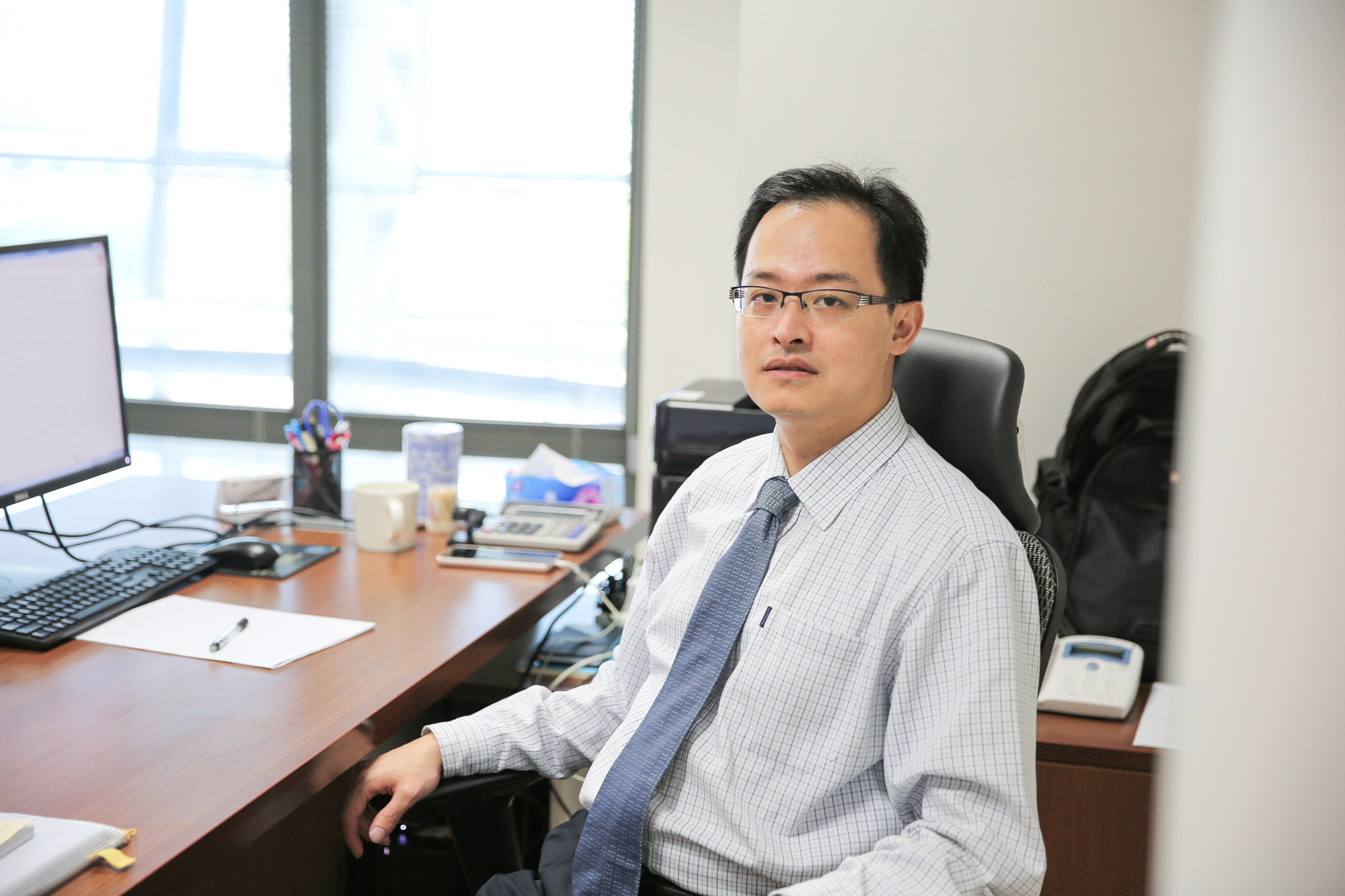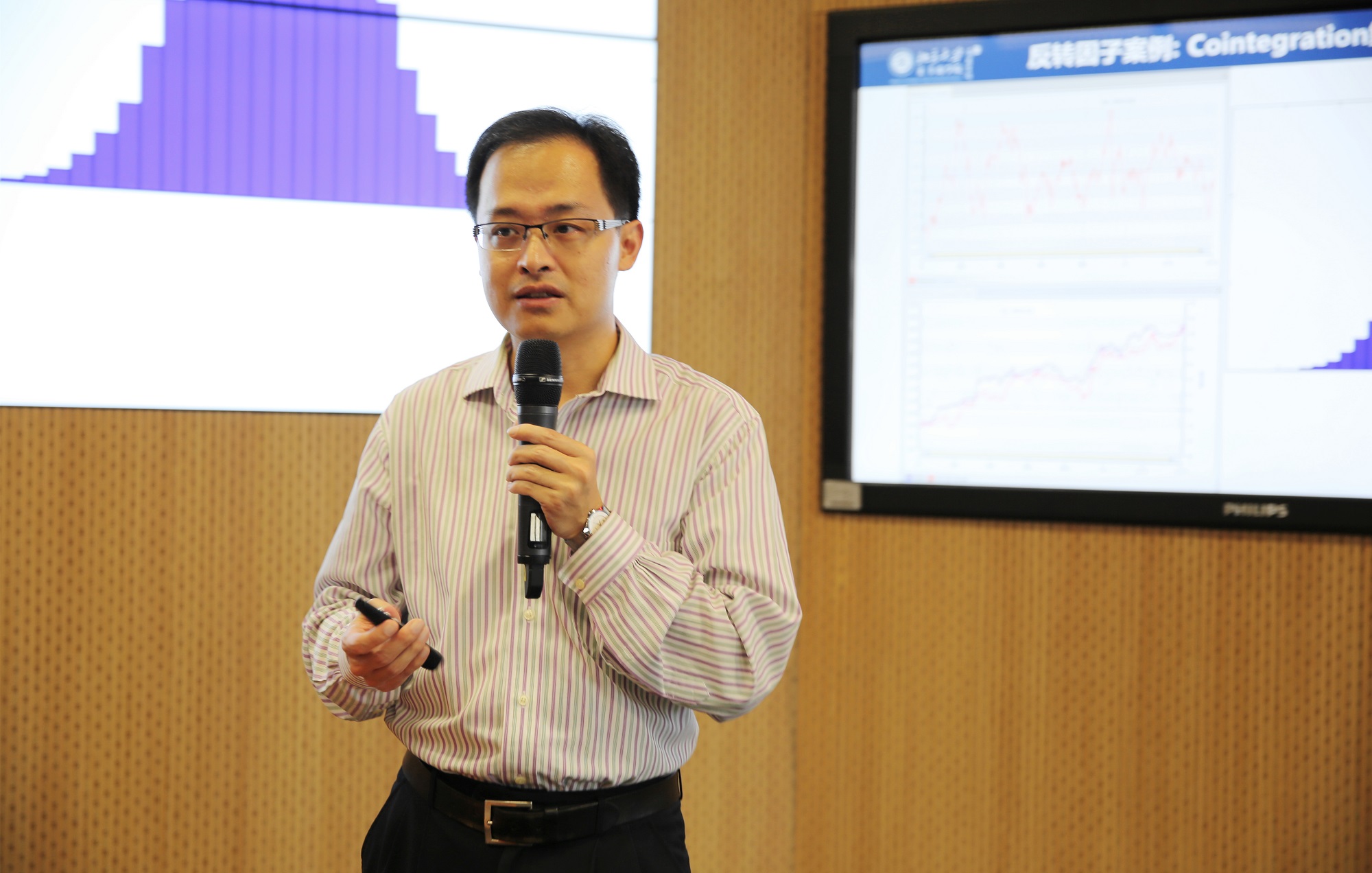Zhu Xiaotian, former head of Delta One business at CITIC Securities, has joined Peking University HSBC Business School (PHBS) as associate professor. Prior to joining PHBS, Dr. Zhu, worked in financial markets in the U.S., Singapore, and Hong Kong for over 16 years.

Dr. Zhu’s work experience has been interwoven with his educational pursuits. After earning a BA in finance at Xi'an Jiaotong University, he worked as a financial analyst for three years then earned a master’s degree in computational finance at National University of Singapore (NUS). After that, Dr. Zhu worked as a quantitative research analyst at NUS for nearly two years in a cooperative project with the School of Computing, Center of Financial Engineering and Singapore Stock Exchange. While there he used artificial intelligence (AI) technologies, such as neural networks and machine learning to forecast stock index and conduct pattern recognition. Later, Dr. Zhu earned his Ph.D. in finance at State University of Virginia and started his career at top financial institutions in the U.S.
As a senior quantitative analyst at J.P. Morgan, Dr. Zhu mainly dealt with financial modeling, risk analysis and forecasting. Noted as one of the world’s most profitable banks, J.P. Morgan has over $2.5 trillion in assets and manages a more-than-$1.5-trillion capital pool. After leaving J.P. Morgan, Zhu joined Credit Suisse, a Swiss financial multinational, as a Delta One index trader, working on high frequency trading and statistical and international arbitrage. One of the fastest-growing businesses among the world’s biggest banks, Delta One business involves banks trading or creating securities that track an underlying index or asset, such as shares or silver.
FT Alphaville has described Delta One trading as "one of the hottest areas in banking."
Four years ago, Dr. Zhu returned to China and joined CITIC Securities as senior vice president and head of its Delta One business. CITIC Securities is China's largest full-service investment bank that offers services in underwriting, research, brokerage, asset management, wealth management, and investment advisory. Dr. Zhu applied AI technologies to financial market prediction, credit risk scoring and some quantitative investments to better fit nonlinear data correlations, precisely predict capital market fluctuations and assist financial institutions in improving the efficiency of risk management and investment strategies.

Dr. Zhu gave lectures on PHBS quantitative investment course
In addition to his interest in AI, Dr. Zhu also performs research in quant modeling and algorithmic trading for equities, equity derivatives, and fixed income. He has published several papers in renowned international journals, such as
Expert Systems with Applications and
Journal of Finance and Accountancy. Previously, as an invited lecturer for PHBS quantitative investment courses, Dr. Zhu gave talks on “The Application of Artificial Intelligence in Quantitative Investment.” Using AlphaGo v.s. human go players as an example, he elaborated on the underlying mechanism of AI and further shared his insights on how to apply AI technologies in asset allocation, arbitrage strategies and risk management.
Talking about his career shift from industry to academia, Dr. Zhu said, “Joining PHBS, on the one hand, is to teach some courses to share my practical experience with students. On the other hand, I am hoping to leverage the advantages of PHBS to do more cutting-edge research.” He added that Shenzhen’s internationalization, rapid development of FinTech and being close to Hong Kong serves as a plus for PHBS.
In the future, Dr. Zhu plans to set up a research institute on quantitative investment, where through cooperation with industry, he can establish an effective evaluation system for private equities and AI-driven investment consultants and further probe in-depth quantitative research. His research will focus on artificial intelligence, and Dr. Zhu plans to write textbooks for financial practice, financial white papers, and so on.
Dr. Zhu’s presence at PHBS will also enrich the student experience here. At present, he teaches China’s Financial Market and Investment course. Starting in fall 2017, he will also offer several courses on financial data analysis, investment strategy development, and financial derivatives. For example, the course Financial Derivatives for MBA students is designed to help students understand China's financial derivatives tools through looking into Chinese market situations and financial practices and eventually equip students with skills to meet the needs of financial institutions. The Credit Risk Analysis course for full-time students will focus on large data mining and financial modeling to help students understand the development and maintenance of credit risk evaluation models for financial institutions and develop their professional skills in risk management.
"I will incorporate practical examples in the courses so that students can have a better grasp of industry situations and practices. For instance, how to do proprietary trading and systematic transactions,” commented Dr. Zhu. He hopes that the courses closely related to financial markets allow students to understand industry dynamics and practical skills, and even shed light on their future career choices.
Indeed, PHBS Dean Hai Wen hopes that hiring practitioners from top financial institutions as full-time professors can help to provide a better fit between business education and the latest trends in the financial market, and cultivate more competitive financial professionals.
By Annie Jin
Edited by Priscilla Young
















